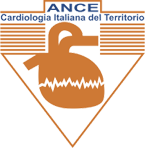Patients with heart failure have a poor prognosis, yet outcomes might be improved by early identification of risk. Proenkephalin (proENK), a novel biomarker, is a stable surrogate marker for endogenous enkephalins and is an independent predictor of heart failure and death in patients who had an acute myocardial infarction. This is the first study to evaluate the prognostic utility of this biomarker in stable ambulatory patients. We conducted a 4-year single-center prospective cohort study of 200 patients who were referred for an outpatient echocardiogram. Blood samples were obtained to analyze levels of proENK at the time of the initial echocardiogram. Patients were evaluated for the combined end point cardiovascular-related hospital admission or death. Participants with higher proENK levels were older and had higher serum creatinine and lower estimated glomerular filtration rate, lower ejection fraction, and higher rates of hypertension and diabetes (p ≤0.009). Highest proENK tertile had a hazard ratio of 3.0 (95% confidence interval 1.4 to 6.7) compared with the first tertile (p <0.007) for the primary end point. In conclusion, proENK demonstrated significant prognostic utility for cardiovascular-related hospital admission or death.
A cura di Calogero Cacullo
